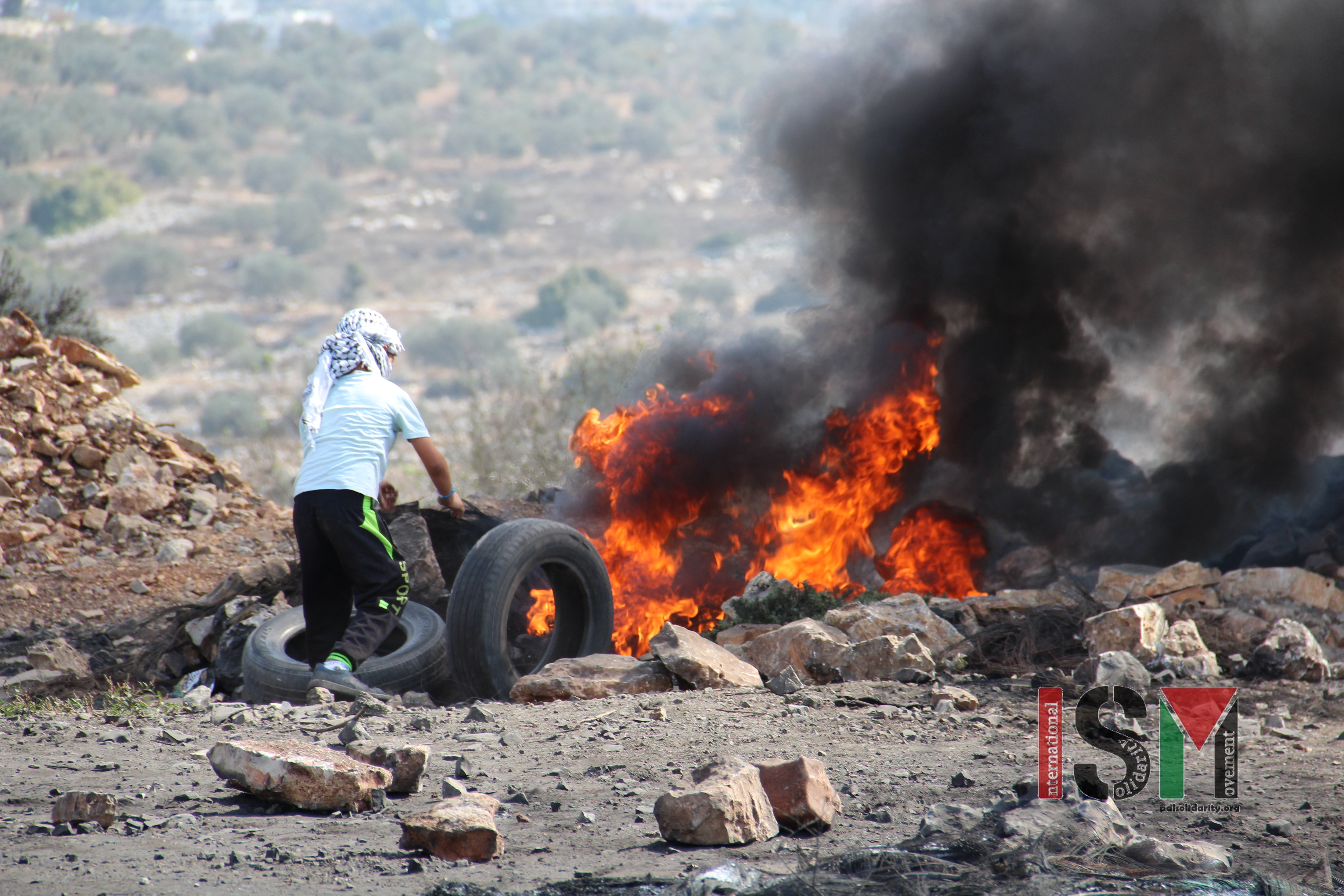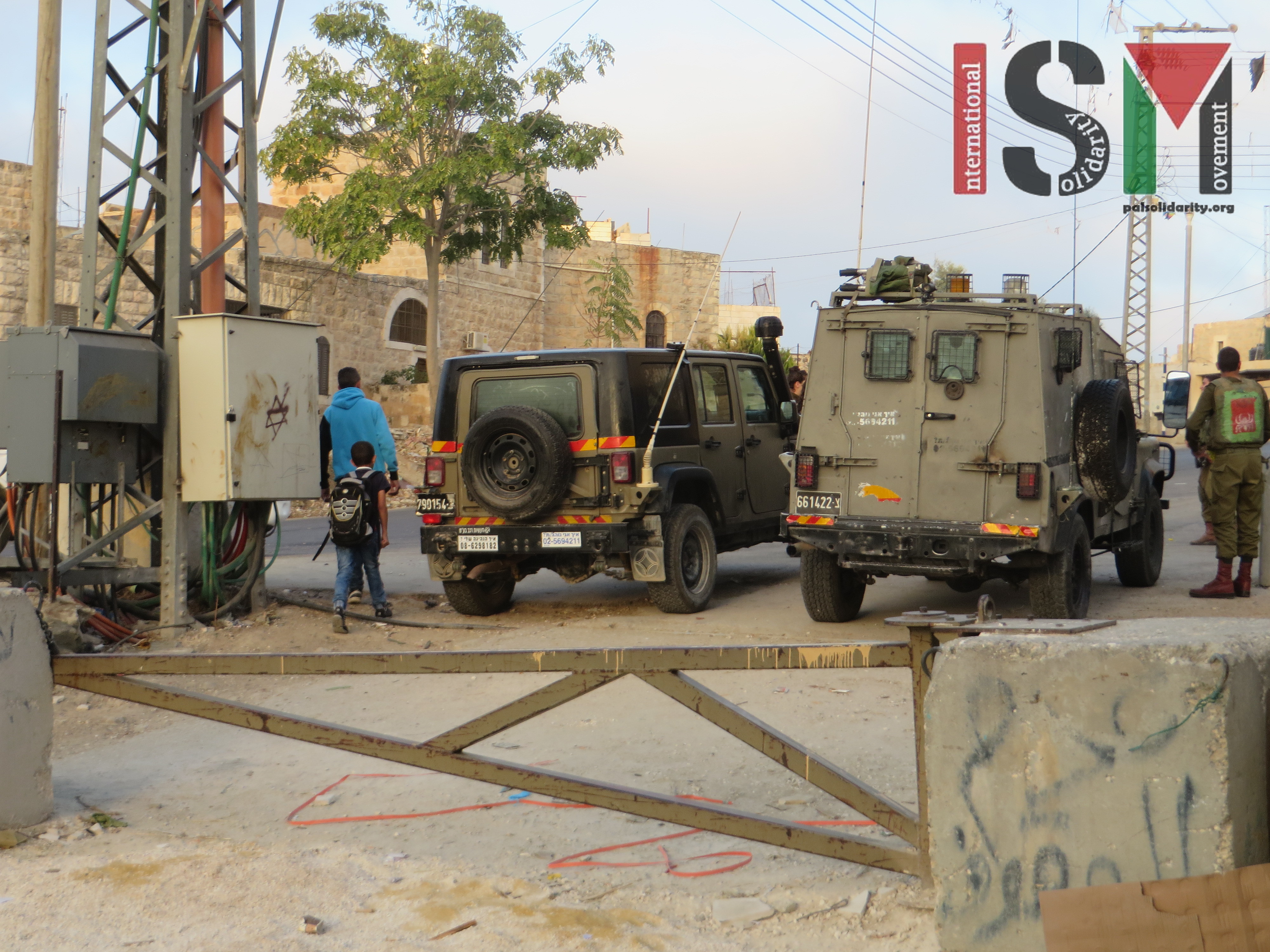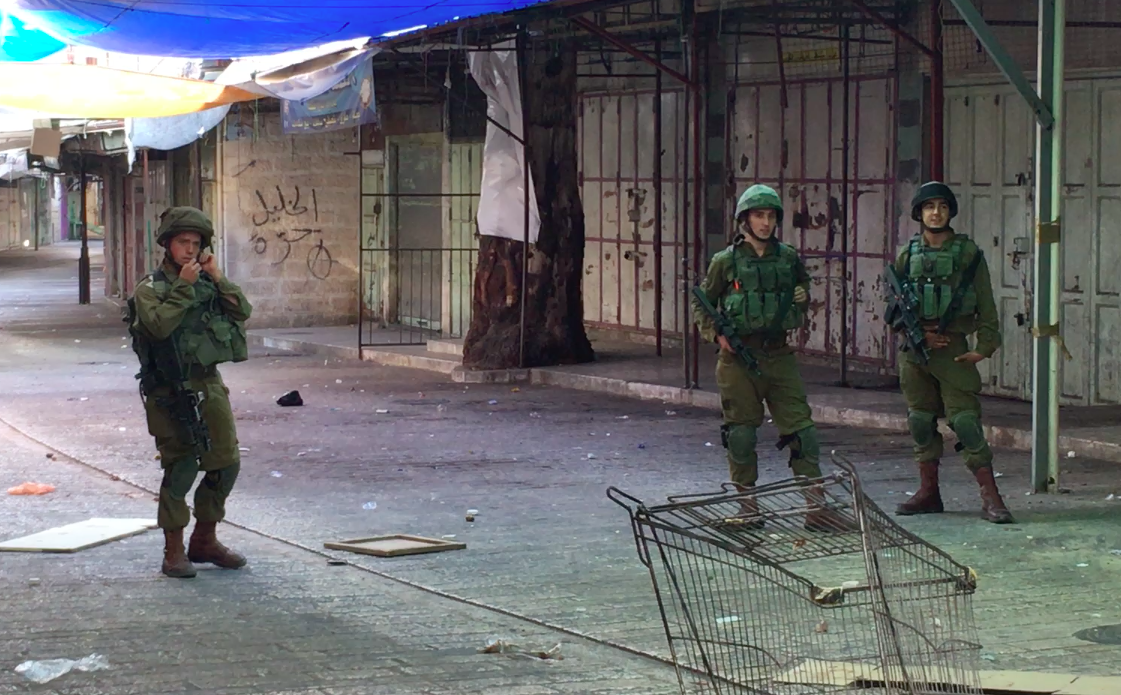Category: Journals
-

Kafr Qaddum: Peaceful people under violent occupation
25th October 2016 | International Solidarity Movement, al-Khalil team | Hebron, occupied Palestine Last Friday I attended a demonstration in the small town of Kafr Qaddum, situated in the Northern region of the West Bank, just west of the city of Nablus. In 1974 Israel began to illegally erect settlements in the nearby Keddumin area.…
-

Occupation through the eyes of a child: the way to school
24th October 2016 | International Solidarity Movement, al-Khalil team | Hebron, occupied Palestine Imagine being an eight-year old boy, walking to school, and as you come close, close to the roadblock you have to pass every day, army jeeps are everywhere, blocking the roadblock and the gate. You have to squeeze past the jeeps on…
-

The Weight of Each Stone
For generations, stones have played a significant role in both Palestinian society and within resistance movements. For this reason, it should be no surprise that the Israeli state has historically targeted the use of stones in a variety of ways, and continues to today. The significance of stones within the Palestinian context is deeply-rooted. For…
